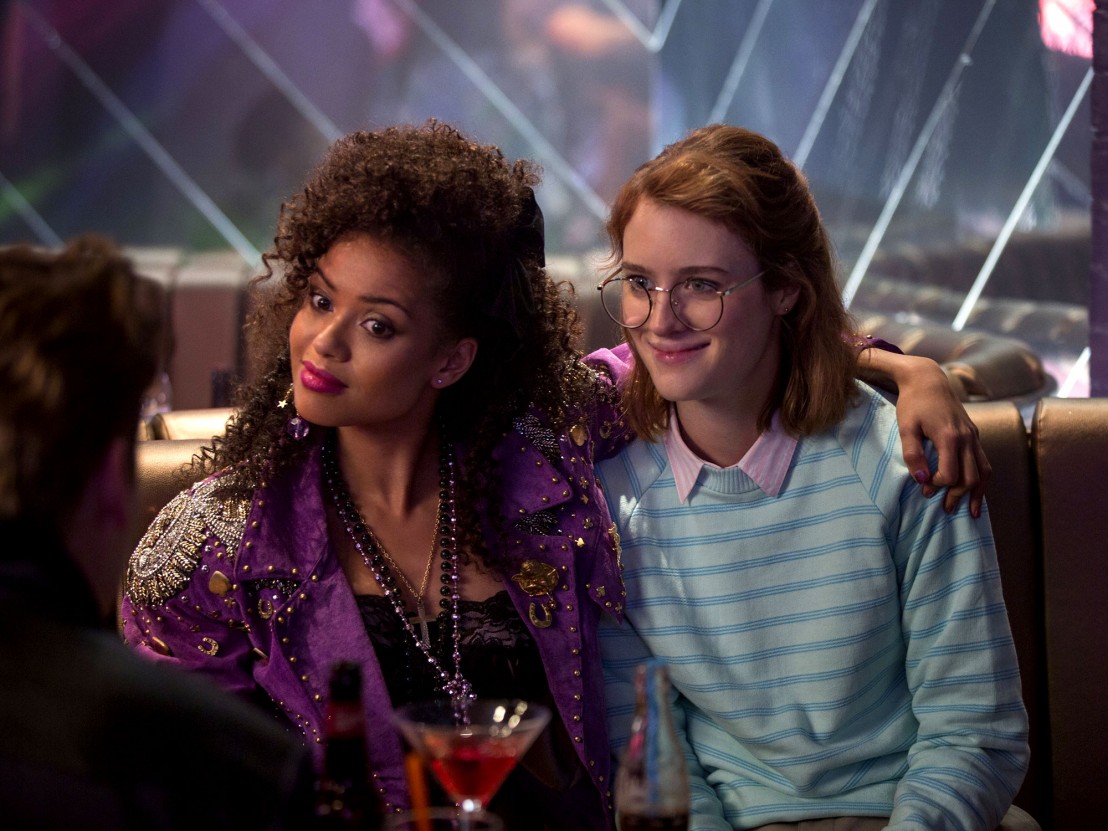
Near the end of episode four of the new season of Black Mirror, there’s a line that painfully captures everything that has come in the blissful preceding 50 minutes. It is seemingly incidental, shouted in the heat of the moment of an argument with no pause after. It’s a plea, a desperate attempt to make someone stay, a gnawing need to vocalise something after years of keeping it buried somewhere deep inside. “It’s not a trap!” Yorkie (Mackenzie Davis) yells at her new wife, Kelly (Gugu Mbatha-Raw).
The ‘it’, first and foremost, is San Junipero, a seaside party town in the near future that is replicated from neon-drenched nostalgia for 1980s, ’90s, and even 2000s. There’s a poster for The Lost Boys on a street corner, and Belinda Carlisle’s ‘Heaven is a Place On Earth’ fills the electric air. The inhabitants of this town have their consciousness uploaded to a bank of servers after they die, allowing them to live young, wild and free for all eternity. But moreover, ‘it’ is the reality of Yorkie and Kelly’s lives. Just this once, the world is what it appears. No strings attached, no need to be afraid of what’s lurking around the corner if you’re just being yourself. Here, the neon city which never sleeps is exactly what it seems. For once, Yorkie and Kelly will turn out okay.
That their story plays out so painlessly on screen engenders a mixed sense of disbelief and suspicion. The trope of queer (particularly female-identifying) characters dying on screen under the guise of everything from advancing the plot to offering emotional moments, known as the ‘Bury Your Gays’ trope, has been talked about a lot this year. On The 100, a show set in a post-apocalyptic, Hunger Games-esque world, Lexa (Alycia Debnam-Carey) is killed minutes after having sex with her girlfriend Clarke (Eliza Taylor) for the first time. Then there’s The Walking Dead’s Denise (Merritt Wever) and Orange Is the New Black’s Poussey (Samira Wiley), just name just two of the 23 queer women killed on television so far in 2016.
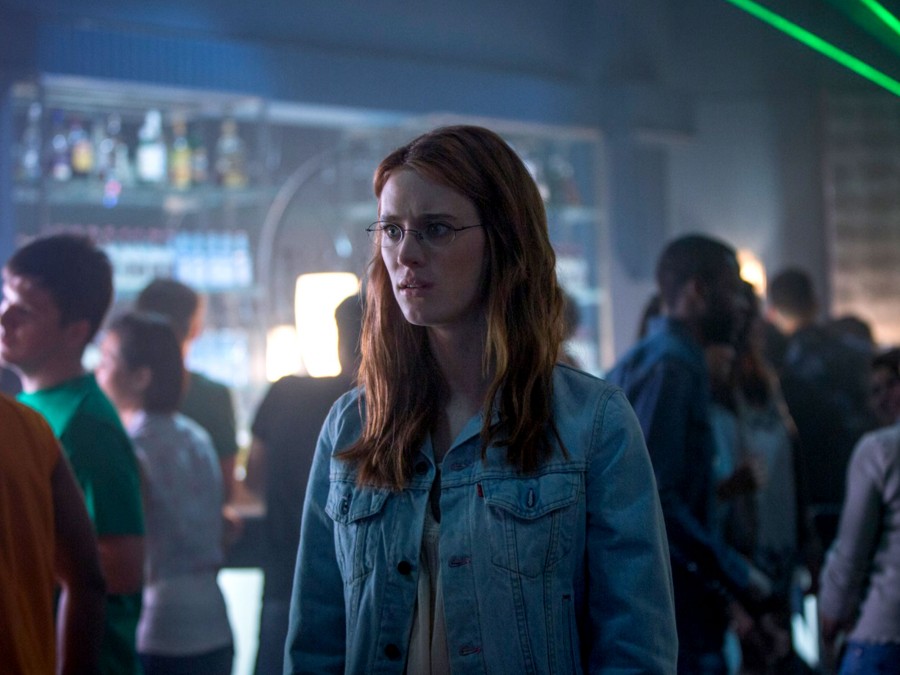
It comes as something of a surprise, then, that the most tragedy-free of queer relationships should come from Black Mirror, a show which typically focuses on telling cautionary tales about the dangers of modern technology and certain prevailing social trends. Technology can be a form of vigilante justice, torture, or punishment, the machines taking control over their creators. It’s the type of melodramatic hysteria that works well in some situations (season two’s ‘White Bear’ remains one of the show’s most terrifying episodes) but not others, with jokes about its unrelenting pessimism flying around. One was even turned into an episode for the current season.
The closest cousin to ‘San Junipero’ in the Black Mirror canon is ‘Be Right Back’, in which a woman (Hayley Atwell) reconstructs her husband (Domhnall Gleeson) after his tragic death. It’s one of the show’s less sinister episodes, considering our relationship with machines from the perspective of emotional attachment rather than physical threat. But while there’s an element of psychosexual horror at play in ‘Be Right Back’, there’s no such twist in ‘San Junipero’. The most ominous moment in the episode occurs when it is revealed that this seemingly perfect world can only be accessed for five hours a week while alive, and one can only permanently live there, forever young, after death.
It may be literal, but it’s a welcome inversion of the ‘Bury Your Gays’ trope which has plagued so many stories before this one. Kelly and Yorkie are not punished for being who they are, finding each other in the process. There is no flip side, the technology is almighty and everlasting but maintained by nothing more than friendly-looking robots in a quiet warehouse. San Junipero doesn’t just mean an end to the physical pain that comes before death, but the emotional baggage that comes with it. The intention is to finally belong, a second chance at living the life one yearns for without the social norms. Yorkie may need to break down a barrier when first pursuing Kelly, asking to “make it easy for me” to take that first step out of the shadows, but once she has, you can see happiness bloom in her face immediately.
It’s in that moment of desperation later, where Yorkie implores Kelly to look and touch and just believe in this safe and beautiful place they once could only dream of, that Kelly hesitates. But then, almost immediately, she sees that it’s not a trap. At last, their happiness can be believed. They can ride off into the sunset with their Hollywood ending, left to explore this sanctuary and love freely. For once, heaven is a place on earth.
Published 28 Oct 2016
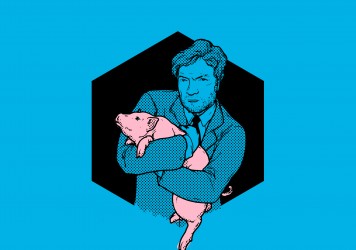
The Black Mirror writer discusses the show’s switch to Netflix, and why he loves torturing his characters.
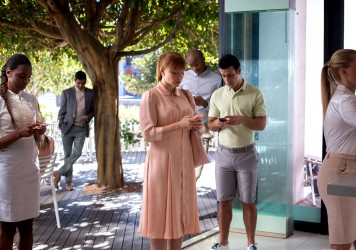
TV’s most thought-provoking social satire is back with a softer vision of a bleak future.
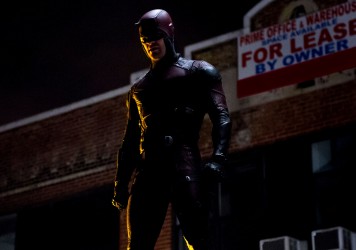
By David Hughes
Like Superman during the Great Depression, today’s superheroes are in-sync with our complex political climate.